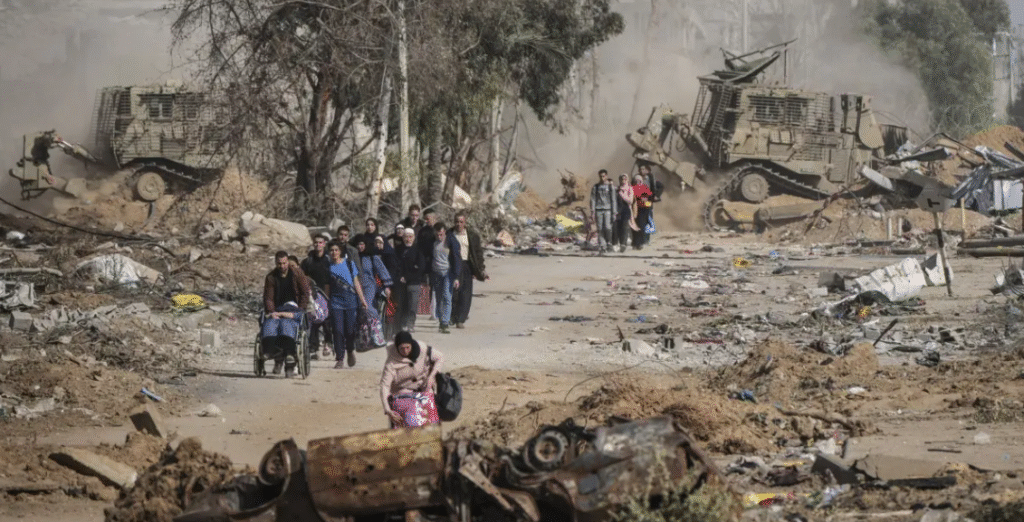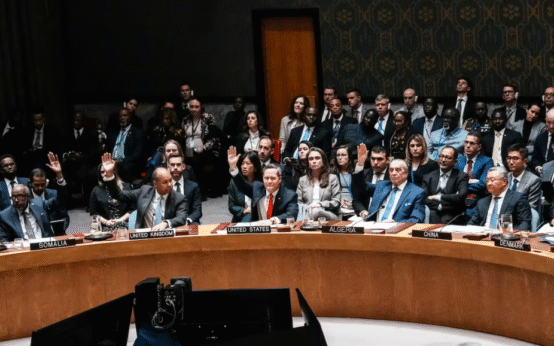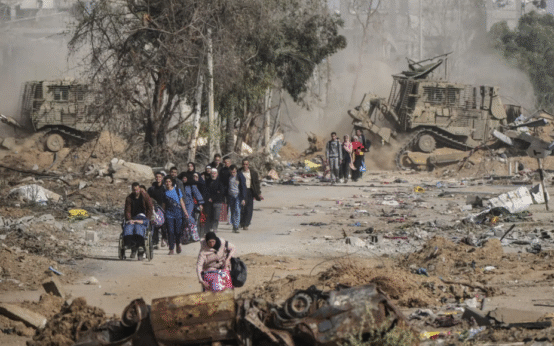In the face of relentless violence and political turmoil, literature has emerged as a powerful form of resistance in Gaza and Israel. From the poignant verses of Palestinian poets to the defiant narratives of Israeli authors, the written word serves as a testament to resilience, a means of preserving identity, and a call for justice.
Palestinian Literary Resistance
Gaza’s literary community has long been a beacon of resistance, using storytelling to document suffering, assert identity, and challenge oppression. In the aftermath of the October 2023 Hamas-led attack on Israel, Palestinian writers have intensified their efforts, producing works that capture the harrowing realities of war and the enduring spirit of their people.

One notable figure is Refaat Alareer, a poet and professor whose work has gained international acclaim. His poem If I Must Die, written shortly before his death in an Israeli airstrike, became a symbol of resistance. The poem, which envisions a child in Gaza seeing a white kite as a sign of hope, was widely shared and translated into over 100 languages, resonating globally as a call for peace and justice.
Israeli Literary Voices Confronting the Conflict
Within Israel, a growing number of writers and intellectuals are using their platforms to critique their government’s policies and advocate for peace. In June 2025, over 380 writers, including notable figures like Zadie Smith and Ian McEwan, signed a letter condemning Israel’s military actions in Gaza, labeling them as genocidal.
However, this resistance has not been without repercussions. Israeli Culture Minister Miki Zohar threatened to withdraw government funding from the country’s national film awards, the Ophirs, following the announcement that a Palestinian-themed film had won the top prize.

In particular, critics highlighted the film’s nuanced depiction of cross-cultural understanding. Nevertheless, Zohar’s reaction underscored growing tensions over artistic expression and political narratives in Israeli cinema. As a result, the controversy has sparked renewed debate about the role of government in shaping cultural discourse. Meanwhile, supporters of the film argue that its recognition reflects a broader desire for reconciliation and dialogue.
International Solidarity and the Global Impact of Literature
The resonance of Palestinian and Israeli literary works has transcended national borders, garnering international attention and support. Global movements, such as “Writers Against the War on Gaza,” have mobilized writers and readers worldwide to stand in solidarity with the people of Gaza. These efforts include organizing readings, publishing translations, and advocating for policy changes that support Palestinian rights and sovereignty.
Furthermore, international literary awards and platforms have provided a stage for Palestinian voices, amplifying their narratives and ensuring they reach a global audience. By recognizing and celebrating these works, the international community affirms the importance of cultural resistance and the power of literature to effect change.


 UN Security Council Endorses Trump’s Gaza Plan, While Hamas Rejects Key Provisions
UN Security Council Endorses Trump’s Gaza Plan, While Hamas Rejects Key Provisions  Trump Announces Gaza Peace Deal Israel Hamas Sign Agreement
Trump Announces Gaza Peace Deal Israel Hamas Sign Agreement  Airstrikes and Gunfire Kill at Least 57 in Gaza as Conflict Deepens
Airstrikes and Gunfire Kill at Least 57 in Gaza as Conflict Deepens  Italy sends naval vessel to help Gaza aid flotilla
Italy sends naval vessel to help Gaza aid flotilla  UN to Vote on Gaza Solution Without Hamas
UN to Vote on Gaza Solution Without Hamas  Tens of Thousands March in Brussels to Draw Red Line for Gaza
Tens of Thousands March in Brussels to Draw Red Line for Gaza